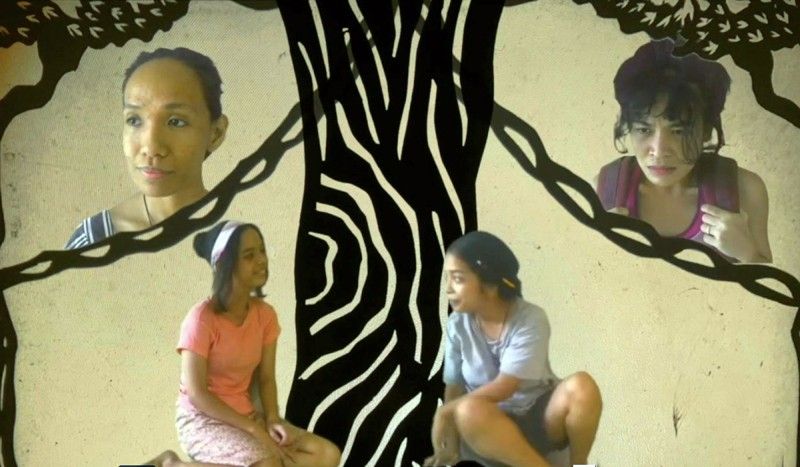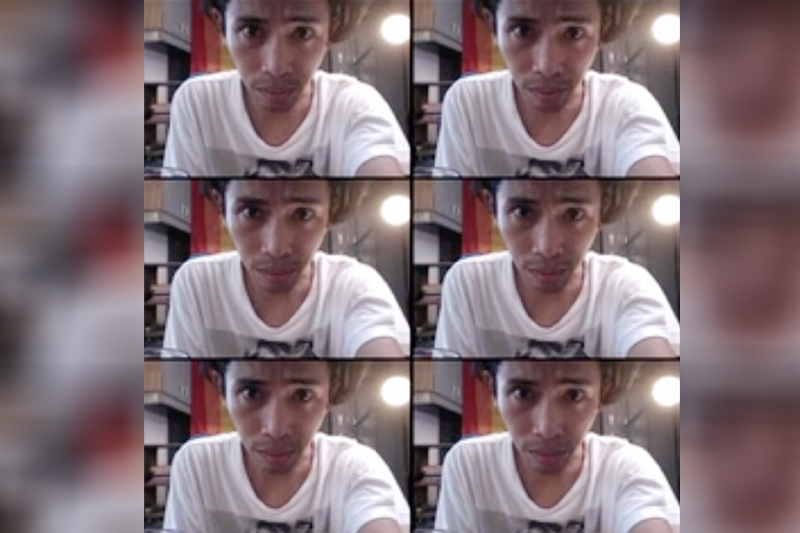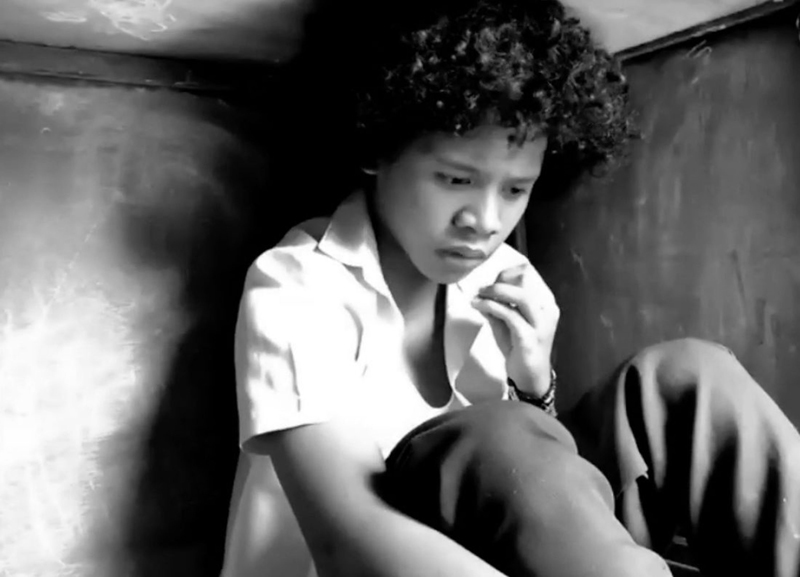The screen cracks open


A review of Virgin Labfest 2020
While watching the plays of Virgin Labfest (VLF) this year, it’s amusing to consider how actors performing in isolation are made to relate to the screen as a mirror, as a spectator, and perhaps more interestingly as another character. There are the men at Boyboy and Friends Channel, tasked to sustain the illusion of being in one room. They turn their heads from side to side, as though addressing one another, checking the screen to see if their gazes are aimed right.
Theater’s intimacy has at times been attributed to its independence from the screen as a distancing apparatus. Its thrilling immediacy comes from presence, from inhabiting the same moment, from sharing body heat and breathing space—which, at this point in time, would be a dangerous proposition. Themed “Kapit” and led by festival director JK Anicoche, the 16th edition of VLF is brave in its insistence that the show must go on. As actors perform remotely and works were staged from June 10 to 28, with an extended screening until July 15, it was exciting to see how different directors realized “untried, untested, and unstaged plays,” by working with what the screen both limits and enables.

The provisionality, or the downright sloppiness that defines digital collages pre-Photoshop (and now, Zoom backgrounds) also characterizes the visuals of Anthony Kim Vergara’s Boyboy and Friends Channel directed by Joshua Tayco. In this comedy where heads appear in different sizes and every sharp thing imaginable is a phallic reference, the rough visuals somehow work to reinforce its theme of performance as cheap artifice, a display of machismo that is tattered at the edges. The screen is kitschy window dressing, and through it we glean the stench of toxic masculinity — which the festival as a whole seems to be bent on exploring, often with derision, but sometimes also with palpable fascination. Boyboy provides moments when the veneer of machismo cracks open a little, unlike in other plays where straight male characters are irredeemably one-dimensional through and through.
Seeing a single un-pixelated screen returns a feeling of familiarity with the medium, the comfort of knowing exactly what to anticipate. Floyd Scott Tiogangco’s Pilot Episode begins with this, the promise of a monologue, and we are made to share a short-lived space of stability, before the screen then multiplies, flickers, fluctuates, and becomes an illustration of a queer, bipolar character’s inner state. The manic upsurge of energy, with its sporadic dips and falls, is one that actor Phi Palmos manages so well while cameras pointed at different angles are adeptly commanded by director Giancarlo Abrahan to suggest three characters in proximity. But I also find the distance affecting. The split enforced by the screen is equally resonant in conveying the care and caution one takes in approaching.
The same earnest distance speaks volumes in Titser Kit, written by Jobert Grey Landeza and directed by Adrienne Vergara. Shot in black and white, there are only slight changes in the visuals, consisting only of intensifying light and shadows on a Lumad student crouched under a table. Here, a single alternating screen evokes both intimacy and confinement. Io Balanon, playing the titular character, uses tenderness and warmth to breach the distance and coax the student out. The well-worn coming-of-age themes of inner strength and standing up for oneself are invested with poignancy and urgency as Landeza’s piece gently walks us through the painful realities of marginalized bodies and remaindered lives.
Just like every Zoom call, I experience the screen in these works as both bridge and barrier. We go on discovering its boundaries and breaking points only as we play along. While in some features, the potency of the material is diluted by the performers’ inability to move within physical space, some are further restricted by a sort of framework that the screen imposes.
In works like Nicko de Guzman’s Bagahe and Mark Norman Boquiren’s Mayang Bubot sa Tag-Araw, characters seem to serve as conduits for conveying contradicting viewpoints and beliefs. Bagahe, beautifully performed with carefully marshaled silences, tells the troubling and necessary tale of an activist who lives with the burden and privilege of leaving. Yet while the complexity of the wife is aptly sketched, the husband’s character isn’t as fleshed out. Commanded only by two figures, the screen risks the danger of projecting a false binary between intellectual activist and unthinking brute, with the latter’s opinions far less compelling than the former. I was left wondering: what does this say about the president’s supporters that I do not already know? Just as Mayang Bubot sa Tag-Araw is weighed down by a need to demonstrate an argument that was already won from the beginning, perhaps my discomfort with the husband’s characterization in Bagahe is that it does not give me enough discomfort, if I know exactly where to side and who to feel for. It was Daryl Pasion’s Papaano Turuan ang Babae Humawak ng Baril which made it more difficult to take sides, as the task of unsettling binaries was central to the material.

Whether they’re buoyed by the directors’ vision or simply lost in the glitch, the stories in this batch stressed a call for theater to be grounded in the times. I’d be lying if I said watching the “live” shows wasn’t difficult (I was constantly checking if the actors had lost connection or if my mobile data had given up). But at best, the experience was like watching theater reconsider itself, reimagine its parameters, declare all procedures as provisional, built up as we go along. What matters most is we keep playing.
***
The Virgin Labfest 2020 Kapit: Lab in the Time of Covid is co-presented by the Cultural Center of the Philippines, Writer’s Bloc, Inc., and Tanghalang Pilipino. The plays can be streamed on Cultural Center PH’s Vimeo channel until July 15.



















